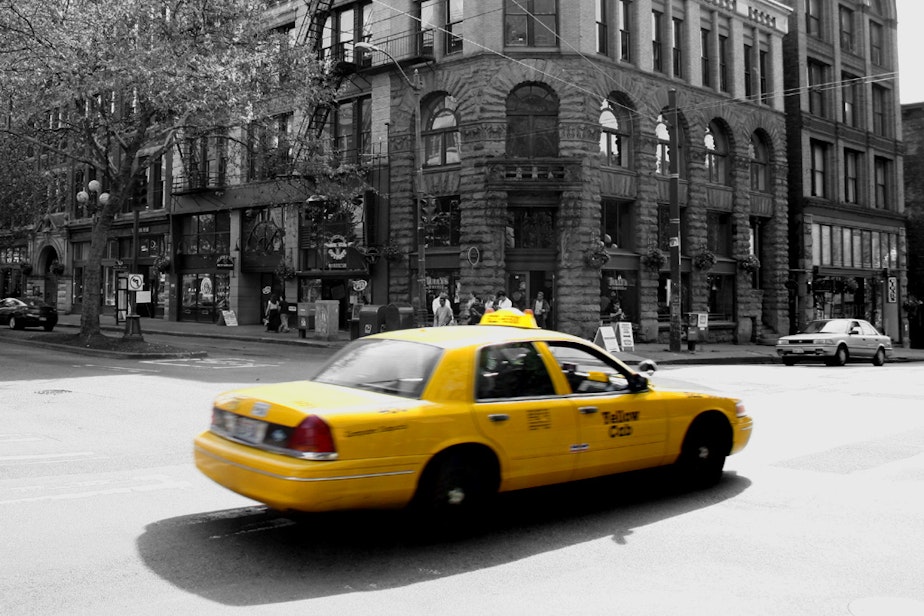City Council And Business Continue To Clash On Rideshare Regulation

The ongoing debate about how to regulate ridesharing in Seattle seems to be coming down to a fight over numbers. The Seattle City Council is considering capping the number of licensed rideshare drivers but is getting pushback from the companies who thus far have been operating in Seattle illegally.
At a Seattle City Council committee meeting on Friday, Councilwoman Sally Bagshaw said the refusal of rideshare companies to tell the council how many drivers they currently have, or hope to have in the future, has been frustrating. “I have really asked, I know everybody at this table has asked for numbers, and frankly I feel like we’ve had to scold you to get as much as we’ve gotten," she said.
UberX general manager Brooke Steger said she doesn’t believe those numbers are necessary for the council’s decision making. “Sharing that data has absolutely nothing to do with safety, and it has everything to do with toeing the status quo,” Steger said. “So that is why we have chosen not to show those numbers with the council.”
Taxi drivers say capping the number of drivers who work for companies like Lyft and UberX is a matter of fairness; rideshare companies respond that caps would put them out of business. For the council, finding a regulation solution is about safety and consumer protection.
Bagshaw said she doesn’t support restrictions on the growth of ridesharing. “Let’s not put artificial caps on when we can really do something that’s going to help the consumers and get more jobs for this entire community,” she said.
At least four council members, and Mayor Ed Murray, said they are prepared to let rideshares expand with either a higher cap than originally proposed, or no cap at all.
However Councilmember Mike O’Brien expressed his concerns that rideshare companies pose the biggest threat to Seattle’s many immigrant and refugee taxi drivers, who he said have played by the rules.
“If what we’re saying here is, it is OK in Seattle for companies to come in and operate illegally for a year or two to build up a customer base and then expect that we will bend our rules and regulations to meet their business needs, I think that is a policy question that I am prepared to have and we should have that,” O’Brien said.
O’Brien and fellow Councilmember Kshama Sawant favor the most restrictive limits on rideshare drivers, with a cap of 300 licensed drivers during a two-year pilot.
Committee chair Sally Clark said one concern if no cap is imposed is the potential migration of existing taxi drivers toward working for rideshare companies instead. UberX said half of its drivers are former taxi drivers.
Fewer willing taxi drivers could reduce taxi service and strand traditional passengers who rely on cash or don't have a smartphone, Clark said. In an amendment she proposed, it capped the number of rideshare drivers at 600 in part to slow this potential trend.
But noting the seismic changes underway in the industry, she said that cap would just give taxi drivers and users a little time to adapt to a "likely cap-less future."
The council is scheduled to revisit the issue on Thursday, February 27.

